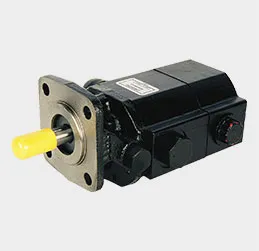precision casting parts
The Benefits and Applications of Precision Casting Parts
Precision casting is an advanced manufacturing process that allows for the creation of complex metal parts with exceptional accuracy and detail. This technique, also known as investment casting or lost-wax casting, has found widespread use across various industries, including aerospace, automotive, medical, and energy. The precision casting process offers several advantages, making it an ideal choice for producing intricate components.
Understanding Precision Casting
The precision casting process begins with the creation of a wax pattern, which is a replica of the final product. This pattern is coated with a refractory material to form a mold. The wax is then melted away, leaving a cavity that mirrors the pattern's shape. Molten metal is poured into this cavity, filling the void and, once cooled, forming the desired part. The final step involves cleaning and finishing the part to meet specific tolerances and surface finishing requirements.
Key Advantages of Precision Casting
1. High Precision and Accuracy One of the primary benefits of precision casting is its ability to produce parts with intricate geometries and high dimensional accuracy. The process allows for tighter tolerances compared to traditional casting methods, making it suitable for applications where precision is critical.
2. Complex Shapes Precision casting can efficiently create complex shapes that would be difficult or impossible to achieve through machining. This includes hollow components, internal passages, and intricate designs, making it ideal for industries requiring unique and complex parts.
3. Material Versatility The process is compatible with a wide range of metals and alloys, including stainless steel, carbon steel, and superalloys. This versatility allows manufacturers to select materials that best fit the performance requirements of their components, whether that includes heat resistance, corrosion resistance, or strength.
4. Cost-Effectiveness While the initial setup for precision casting may be higher than other methods, the long-term cost benefits can be significant. Reduced material waste, lower machining costs, and the ability to produce near-net-shape parts can lead to overall cost savings, making precision casting a cost-effective solution for many applications.
precision casting parts

5. Excellent Surface Finish The precision casting process often results in superior surface finishes compared to other casting methods. This quality minimizes the need for extensive post-processing, which can save time and labor costs.
Applications of Precision Casting Parts
The versatility and precision of this casting method make it invaluable across a broad range of industries
- Aerospace Precision cast components are crucial in the aerospace sector, where lightweight and strong parts are needed. Engine components, fuel nozzles, and gearbox housings are commonly produced using precision casting techniques.
- Automotive The automotive industry relies on precision casting for engine parts, transmission housings, and suspension components. The ability to create intricate designs allows for innovations that enhance vehicle performance and safety.
- Medical Devices In the medical field, precision casting creates parts for surgical instruments, dental applications, and implants. The high precision and biocompatibility of materials used are essential for patient safety and device efficacy.
- Energy Sector The energy industry utilizes precision cast parts in various applications, including turbines, valves, and pump components. The durability and reliability of these parts are critical in harsh operational environments.
Conclusion
Precision casting is a highly effective manufacturing method that offers numerous advantages for producing complex parts with high accuracy. Its ability to accommodate a wide range of materials and produce intricate shapes makes it a preferred choice in various industries. As technology continues to evolve, the prominence of precision casting in modern manufacturing is set to grow, paving the way for innovations and advancements in product design and efficiency. Whether for aerospace, automotive, medical, or energy applications, precision casting remains a cornerstone of high-quality component production.
-
Top Extras Casting Solutions Die Casting and Sand Casting Experts High-Quality Casting and Die Casting ServicesNewsJun.10,2025
-
Top SS Casting Manufacturer Aluminum Die Casting Manufacturer China Precision Die Casting Company SupplierNewsJun.10,2025
-
High-Quality Brass Casting Sand for Precision Sand Casting Brass at HomeNewsJun.10,2025
-
Affordable Aluminum Sand Casting Solutions Custom PartsNewsJun.09,2025
-
High-Quality China Sand Casting Services Cost-Effective & ReliableNewsJun.09,2025
-
Premium Hot Stamping Parts Durable Plastic Decor SolutionsNewsJun.09,2025















